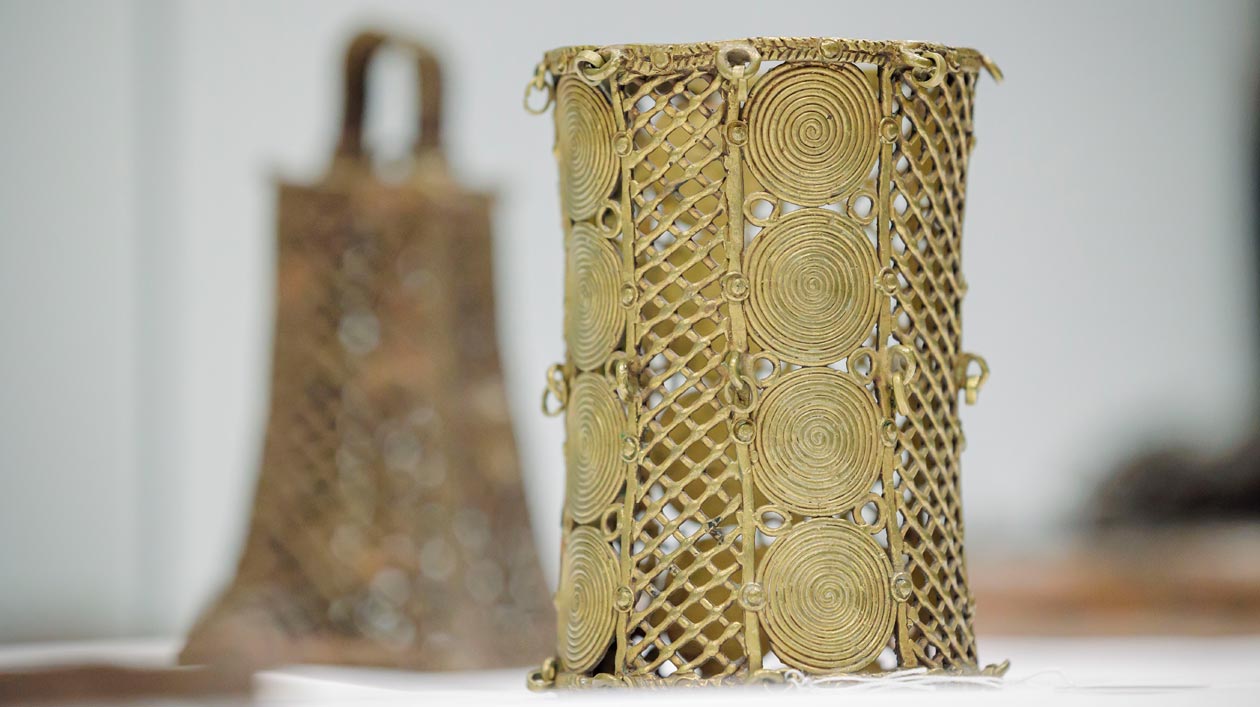Parzinger: Benin Bronzes Must Be Publicly Exhibited
News from 05/09/2023
SPK president reacts to media reports that Nigeria’s departing President Buhari has transferred ownership of all objects to Oba Ewuare II, the successor to the kings of Benin.

Last December, Foreign Minister Baerbock and the Federal Commissioner for Culture and the Media, Claudia Roth, returned the first Benin Bronzes to Nigeria. It was said at the time that they belonged to the Nigerian people. Recently, in an article for the daily newspaper Frankfurter Allgemeine Zeitung, ethnologist Brigitta Hauser-Schäublin reported that, in late March, Nigeria’s then-President Mohammadu Buhari transferred ownership of all the Benin Bronzes to Oba Ewuare II, the successor to the kings of Benin. The Oba, it is reported, thus has all rights to retain and dispose of the objects as he chooses. SPK President Hermann Parzinger comments:
"We are aware of the decree issued by the Nigerian president. It does not contain a single word about the role of the National Commission for Museums and Monuments (NCMM), to which we transferred ownership of the objects. There is an urgent need for clarification here, both from our point of view and within Nigeria as well. It is important that the Benin Bronzes be publicly exhibited, as agreed. And work is under way to that end. The involvement of the Oba of Benin in a durable, long-term intra-Nigerian solution is important.
I would like to stress that I do not share the apprehension that the bronzes might now disappear in vaults or rooms somewhere, never to be seen again. To my mind, that is a rash insinuation. Do we really want to fall back into the attitudes of the 1970s, when we Europeans viewed the return of cultural property to Africa as nothing more than a loss, an act of destruction, a sell-out? We have to leave this sort of thinking behind us if we want to establish a new relationship with Africa – and that is essential for Europe, especially in the current global situation. Again and again, we see that returns trigger debates in the countries of origin between state cultural authorities and regional communities. These are very important processes if we are to arrive at a workable solution, a solution which naturally must reconcile different interests. Restitutions are a new phenomenon for the countries of origin, too, and this kind of debate is therefore legitimate and even necessary. In our discussions, the Oba and his representatives have always very credibly emphasized the great interest in a public presentation of art from Benin, including international loans to museums."

